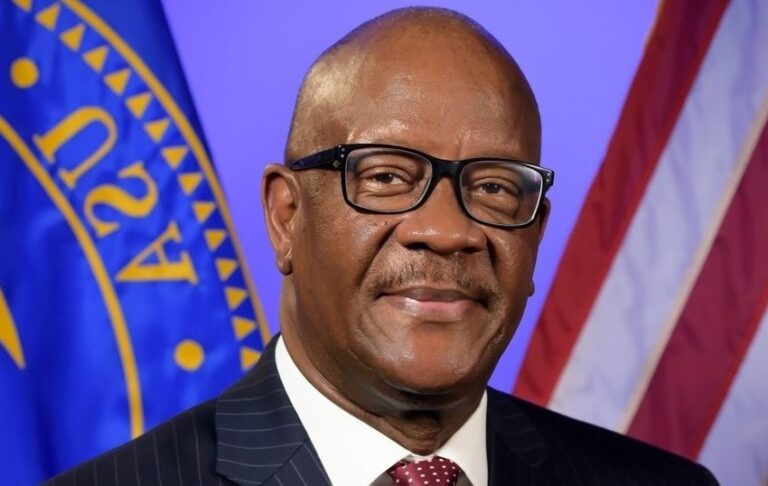The Deutsche Gesellschaft Fur Internationale Zusammenarbeit (GIZ), in collaboration with the National Public Health Agency (NPHA), convened a three-day high-level stakeholders’ workshop at the Wusum Hotel in Makeni on Gender in One Health.
The workshop focused on the presentation of assessment findings and the co-creation of awareness-raising messages across regional and district levels.
The event brought together participants from both the public and private sectors, including: Dr. Lisa Seidelman, GIZ Cooperation Hesse; Dr. Joseph S. Bangura, DMO Bombali; Samuel Josephus Byrne, Gender in One Health Consultant; Ibrahim Kamara, Director of Planning and Policy, Ministry of Gender and Children’s Affairs; Emmanuella K. Anderson, Principal Health/UHC Coordinator, Ministry of Health and Sanitation; Jemba-Makii Aziz-Kamara, Gender Desk Coordinator, NPHA; Representatives from Pujehun, Kailahun, and Kambia Districts.
Chairing the opening session, the Gender in One Health Consultant, Samuel Josephus Byrne, welcomed participants and outlined the objectives of the workshop, which he said is to engage key stakeholders, present findings from district gender assessments, and develop tailored awareness messages to enhance gender integration in One Health activities.
He stressed the importance of recognizing the roles of women in One Health and addressing vulnerabilities within communities.
In her opening remarks, Dr. Lisa Seidelman from GIZ emphasized GIZ’s commitment to sustainable development, gender sensitivity, and environmental protection. On.
She encouraged participants to collaborate in developing key messages that would address gender inclusiveness in planning, evaluation, and disease prevention.
Dr. Joseph S. Bangura, Bombali DMO, reaffirmed regional commitments in tackling gender-related health challenges, particularly those affecting vulnerable groups such as women.
During the presentation session, Ms Rachel Sandi, Deputy National One Health Technical Coordinator, provided an overview of the National One Health Secretariat, its mission, and strategic frameworks.
She underscored the interconnectedness of human, animal, and environmental health, highlighting the Secretariat’s role in strengthening surveillance, preparedness, and response systems.
Emmanuella K. Anderson a representative from the Ministry of Health and Sanitation discussed the importance of mainstreaming gender in health, noting that equal participation and policy reforms are essential to bridging gender disparities in healthcare access.
Jemba-Makii Aziz-Kamara from NPHA presented the gender dimensions of One Health, stressing the importance of integrating gender perspectives to improve communication, participation, and sustainability of health interventions.
Ibrahim Kamara from the Ministry of Gender and Children’s Affairs addressed the issue of Gender-Based Violence (GBV) during public health emergencies, noting that, outbreaks often worsen vulnerabilities due to disrupted social systems and economic instability. He urged stakeholders to strengthen response mechanisms nationwide.
Sia Mary Forya highlighted the significance of effective communication strategies in raising awareness, stressing that risk factors, target audiences, and proper channels form the; backbone of successful advocacy and prevention campaigns.
On the second day, Samuel Josephus Byrne presented the district gender assessment findings, highlighting community perceptions of One Health as both an epidemic preparedness framework and a shared responsibility for disease prevention.
He addressed institutional and cultural challenges, including harmful practices such as early marriage and domestic violence, and called for reinforced gender-sensitive health strategies.
Breakout group discussions followed, where district representatives reflected on challenges, shared experiences, and discussed institutional capacity to address gender and health security gaps.
The final day wrapped up with a summary of outcomes and commitments.
Key focus areas included: Gender dynamics in animal health and veterinary services, Gender integration in One Health policies,
Cross-sector collaboration to reduce gender-related risks in epidemics, and Development of concrete action plans for implementation at national and district levels
The workshop concluded with participants reaffirming their collective commitment to mainstreaming gender in One Health strategies, ensuring inclusivity, equity, and sustainability in health interventions across Sierra Leone.
Credit: Kelvin Mark Kargbo











